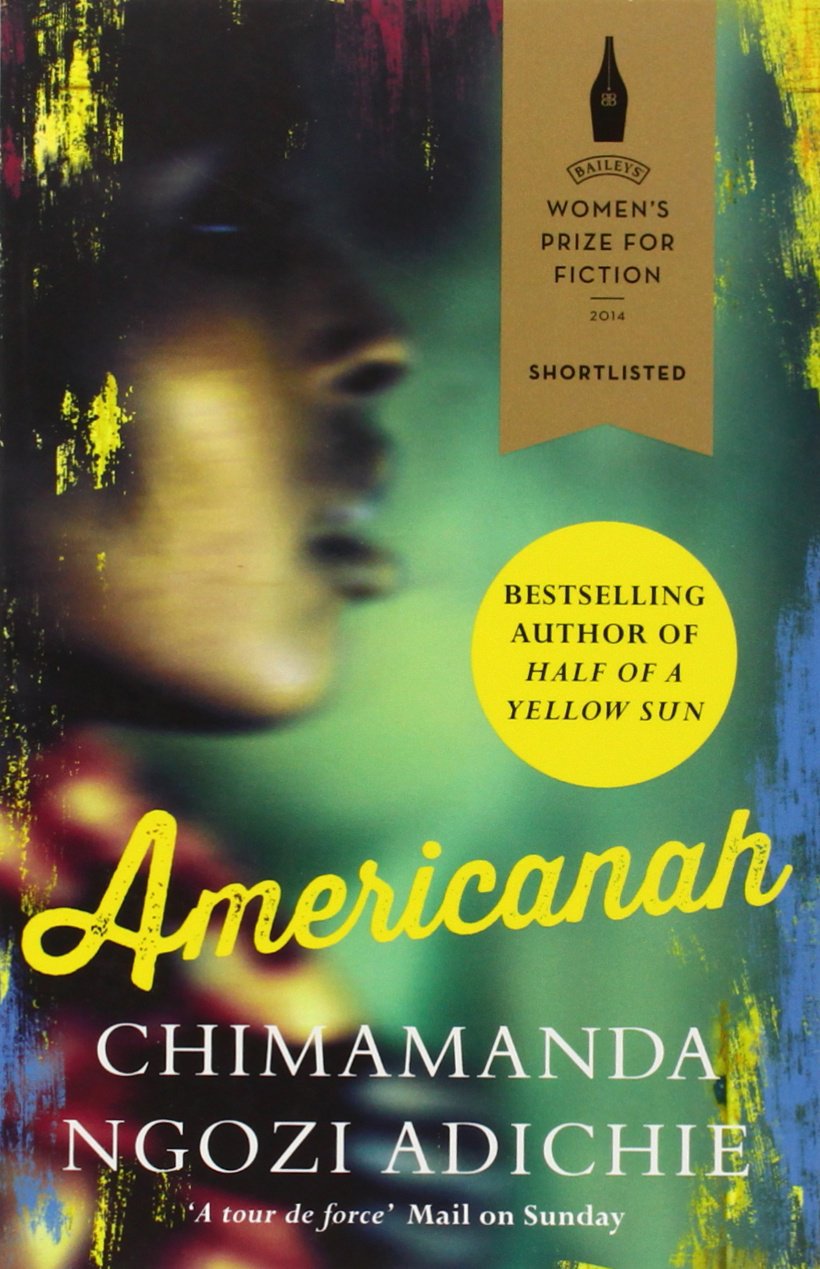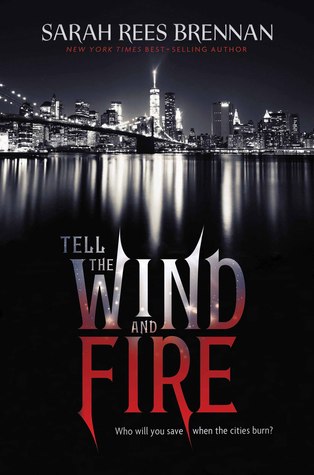Wednesday, 24 February 2016
Tuesday, 23 February 2016
26 Books: A Book Recommended by a Friend
This would have been number 4: 'A book your friend loves.'
'Americana' by Chimamanda Ngozi Adichie (J):
(read May 2015)
 Splendid! The third of Adichie's I've read, and the first to listen to as an audiobook more than reading (using whispersync, which was only partially successful in terms of synching).
Splendid! The third of Adichie's I've read, and the first to listen to as an audiobook more than reading (using whispersync, which was only partially successful in terms of synching).What was it about? Lots! Primarily the difficult moral world we all live in, and the many ways we deal with it. Taking place in Nigeria, the US and London from the late eighties to about 2010, and seen mostly through the eyes of Ifemelu, who is a mid teenager when we first meet her, and Obinze, her contemporary and soul-mate (though I don't think that phrase is ever used). It is also very good on the complex subject of race and racism in modern America.
That all sounds rather dry, and I didn't find it so at all. There are lots of lovely characters who I cared about (maybe too many) and I feel as if I learned a lot about places and ways of life I know nothing of through the lives I'm shown.
And although whispersync was a bit graunchy, it was read by a wonderful voice who did all the accents, adding tremendously to my enjoyment.
J
'Stolen' by Lucy Christopher (E):
(read June 2015)
 Written as a letter to her captor, Stolen encapsulates the journey of Gemma and her captor, Ty, who takes her from Bangkok Airport after an argument with her parents, drugged her and takes her to the Australian outback. Literally in the middle of absolutely nowhere, there is no way Gemma can escape, no way to call for help, no way to communicate with anyone besides Ty. But as the days go by, their relationship begins to change. Is Ty as awful as Gemma thinks?
Written as a letter to her captor, Stolen encapsulates the journey of Gemma and her captor, Ty, who takes her from Bangkok Airport after an argument with her parents, drugged her and takes her to the Australian outback. Literally in the middle of absolutely nowhere, there is no way Gemma can escape, no way to call for help, no way to communicate with anyone besides Ty. But as the days go by, their relationship begins to change. Is Ty as awful as Gemma thinks?I was a little disappointed with this book; people have really raved about how brilliant it is. Don't get me wrong: it is a good book, but it isn't revolutionary. It's the writing I had an issue with, it felt banal and not very well thought through. The plot was really interesting though, and gave me a real insight to how an individual can become attached to their captor. Ty's obsession reaches the absolute height of creepiness, but Gemma's response to him was actually believable. I wanted to read on after the ending.
So, a very good premise and plot, let down by, what often seemed like, sloppy writing. It feels like Christopher may have needed more help from her editor, but I seem to be in a minority thinking this.
E
Saturday, 20 February 2016
Book Review: Tell the Wind and Fire
When I saw that there was an ARC for something by Sarah Rees Brennan possibly up for grabs - I had to request it. Honestly? I didn't even read the blurb. I liked the Daemon's Lexicon trilogy so so much
(though didn't get on with the Lyndburn Legacy) that it was a must.
 |
| The Lady herself |
Tell the Wind and Fire is set in a New York that has been split into two cities: the light and the dark. The light have their own magic, and the dark's is much weaker, but the clinch is that when a light wizard uses a lot of magic, a dark magician is needed to drain their blood to stop them getting a sort of 'magic overload' as I think. This is the story of Lucie, born in the dark, child of the light, darling of the poster boy of the light who becomes, not entirely through her own choice in a historic battle between the two cities. There's witty humour, swords, pretty gems, secret hiding places, lies, plots and characters being unexpected. Ooh, and there's dopplegangers.
Now, I found out that this book is based on Dickens' A Tale of Two Cities, which I've read, and I had no idea. So, either: I have completely forgotten how that story goes, or this is a very loose adaptation. I can see the doppleganger idea with people looking alike and (wait for it...) the fact there are two cities. Please someone else enlighten me. To be fair, I haven't AToTT since I was about eight, so maybe I have just forgotten.
It was an enjoyable read. It did not remotely hit the spot of Dameon's Lexicon, nor was it as (in my opinion) poor as the Lyndburn series. It was told as first person from Lucie, but in a lot of ways I feel we still didn't really know here that well by the end. And we certainly didn't know any other character, bar Carywen. Makes sense because she's with him so much, but other characters are mentioned in a way that made me feel I should have the exact idea of who she's talking about, which is a little unnerving.
 |
| To be published in early April |
Unfortunately, there was a lot of information (no 'show don't tell') when describing the world at the beginning. Now, I really don't know how fantasy/sci-fi writers get past this because readers do need to know a lot before any action begins. It works better in other novels: e.g. Daemon's Lexicon, as opposed to Cecelia Ahern's Flawed I recently read, where it was horribly stilted. This was somewhere in the middle - and I really wouldn't know how to get it right!
Towards the end, where Carywn has little speech out about him not being 'good' and how he is still 'selfish' and that Lucie 'treated him like a was a real person'... Didn't work for me. A little OoC and a lot too cheesy.
Basically- I enjoyed it! At the end, Brennan said it can be a stand alone from A Tale of Two Cities. But surely this isn't a stand-alone novel in itself. There must be sequels!
PS Does anyone know has Carwyn is supposed to pronounced?
Wednesday, 17 February 2016
Tuesday, 9 February 2016
A Book You Chose Just for Its Cover
Bringing Up Burns 2015, would've been Number 3 for Bringing Up Burns
'Etta and Otto and Russel and James' by Emma Hooper (A):
(read April 2015)

This was my book bought for its cover without actually opening it and peeking at all! It's a beautiful cover - what I thought was a golden dog with three wise men below him and interestingly naive lettering. The inside was not quite as good as the cover - the dog was a wolf andwas great - a coyote called James and the three very elderly people in the shape of his legs had a story involving snapshots of their convoluted history together and a set of journeys. It was ultimately a sad or sentimental read about aging, different conceptions of the past, famines and childhood, as well as of determined travelling.
A
'Vixen' by Rosie Garland (J):
(read April 2015)
 ** spoiler alert ** I had no expectations of this book, as I bought it on the basis of its beautiful cover, which several other people commented on while I was reading it, so WELL DONE LINDSEY CARR, it did the trick. Then I noticed that the front cover's critic's comment was about Rosie Garland's "lush prose" and I started to have expectations. These were soon dashed: I found her writing jangly, spare and harsh, but this was in contrast to David Mitchell's in The 1,000 Autumns... which I had just finished, so that was a tough comparison. I realised after a while that some of the time Rosie Garland is attempting to write an English meant to represent what might have been spoken in 14th century North Devon. This is a very hard thing to do, and something I often find myself
** spoiler alert ** I had no expectations of this book, as I bought it on the basis of its beautiful cover, which several other people commented on while I was reading it, so WELL DONE LINDSEY CARR, it did the trick. Then I noticed that the front cover's critic's comment was about Rosie Garland's "lush prose" and I started to have expectations. These were soon dashed: I found her writing jangly, spare and harsh, but this was in contrast to David Mitchell's in The 1,000 Autumns... which I had just finished, so that was a tough comparison. I realised after a while that some of the time Rosie Garland is attempting to write an English meant to represent what might have been spoken in 14th century North Devon. This is a very hard thing to do, and something I often find myselfcritical of, both on screen and in books. It's not possible to do correctly for an era as distant as 14th century England: we wouldn't understand it if it was genuine, and to write in current colloquial English would also sound wrong. However, I find some authors more convincing in this than I found in Vixen. By the end of the book I had become used to the style so I wasn't jarred or irritated. Oh dear.
The story was oddly thin. Odd, because the basic themes were interesting and the sort of thing I expect to enjoy: history (the Black Death), relationships (men and women in that era, specifically a good speculation about what supposedly celibate priests and their housekeepers might have been like), a place I vaguely know (Barnstaple and nearby) and yet I wanted more to make me believe.
So, sorry Rosie Garland, I won't be coming back to you, but keep using Lindsey Carr for your covers, and you'll sell anyway!
J
'Weathering' by Lucy Wood (E):
(read in March 2015)
 So, I seem to have struck lucky with the pretty cover one! I chose Weathering because the skeleton leaf is just beautiful, and I love the font too. Never heard of Lucy Wood before last year, and I just spotted this in a book shop. (Mr B's actually!) It's a fantastic book; I love Wood's writing. The book hinges on her writing, in that sense it is very literary. A lot of the book was 'scene setting' which seemed more important than the characters in a way. I would go as far as to say that the place is actually a character in the novel itself. The story is second to the place it's set in . Weathering is an apt title - the weather is so important, and beautifully described that no other title would have fitted. I don't know whether Lucy Wood has written anything since 2015, but I'd be interested to read it (along with the 500 other books on my TBR pile...)
So, I seem to have struck lucky with the pretty cover one! I chose Weathering because the skeleton leaf is just beautiful, and I love the font too. Never heard of Lucy Wood before last year, and I just spotted this in a book shop. (Mr B's actually!) It's a fantastic book; I love Wood's writing. The book hinges on her writing, in that sense it is very literary. A lot of the book was 'scene setting' which seemed more important than the characters in a way. I would go as far as to say that the place is actually a character in the novel itself. The story is second to the place it's set in . Weathering is an apt title - the weather is so important, and beautifully described that no other title would have fitted. I don't know whether Lucy Wood has written anything since 2015, but I'd be interested to read it (along with the 500 other books on my TBR pile...)
Give it a go - it's more than just a pretty face!
E
Subscribe to:
Comments (Atom)



